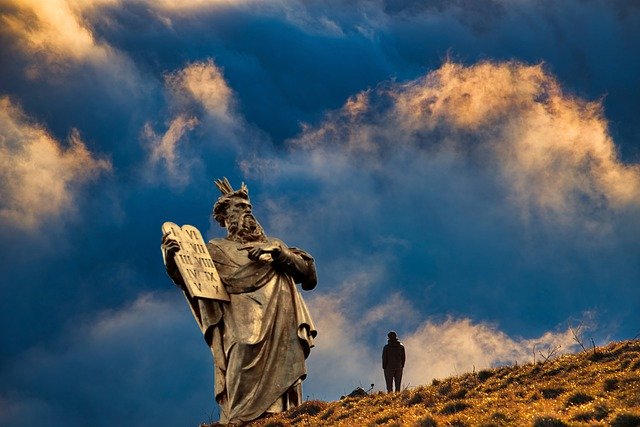
A Moses Approach to Rebellion By Paul Swamidass
Lessons from Moses on Dealing with Rebellion
In Exodus 17:4 we find a perfect description of a rebellion against a leader,
“They are almost ready to stone me.”
These were the alarming words of Moses while approaching God for help, when the people of Israel turned rebellious. Although these words sound ominous, these alarming words of Moses were NOT a prelude to, “Therefore, Lord, I quit. I am out of here.” Here is what happened:
[The people of Israel] camped at Rephidim, but there was no water for the people to drink. Therefore the people quarreled with Moses and said, “Give us water to drink.” And Moses said to them, “Why do you quarrel with me? Why do you test the Lord?” But the people thirsted there for water, and the people grumbled against Moses and said, “Why did you bring us up out of Egypt, to kill us and our children and our livestock with thirst?” So Moses cried to the Lord, “What shall I do with this people? They are almost ready to stone me.” (Exodus 17: 1-4; ESV).
Moses was not the last leader to face a rebellion. In most cases, a leader’s words or deeds may have contributed to the rebellion. But, we know, Moses was not the cause for the lack of water. As their leader, Moses could see their plight and sympathize with his people, but he was totally helpless in getting them water without God’s help in the dry and desolate land around them.
Were the people rebelling against Moses? Since God was the provider for the people of Israel when Moses led them out of Egypt, this was a rebellion against God; Moses understood that.
Moses’ Response
The words of Moses to God, “They are almost ready to stone me,” is a call for help. It has a God-I-desperately-need-your-help-now tone to it.
Moses had seen God come through again and again for his people. He saw God come down hard with plagues upon Egypt, when Pharaoh would not let God’s people go. He saw God progressively pressure Pharaoh until he ultimately let the people of Israel leave Egypt. Later, Moses saw God’s people cross the Red Sea miraculously, and witnessed Pharaoh’s army go under the waters of the Red Sea, while it was pursuing God’s people.
With a fresh memory of these recent actions of God on behalf of his people, Moses approached God knowing He would deliver. He also knew God cared for his people and would come through. Thus, his response to the rebellion was to approach God for help instead of giving up on the people and walk away—in other words, just quit.
Moses Never Quit
Although, at the burning bush (Exodus Chapters 3 and 4), Moses accepted the task reluctantly, Moses showed total commitment to his task of leading God’s people out of Egypt to the Promised Land. For example, in Egypt, he was locked in a struggle with the mighty Pharaoh to free God’s people. The intensity of Moses’ struggle with Pharaoh became evident when Pharaoh was angry at Moses after the ninth plague, and declared he would kill Moses if he saw him ever again (Exodus 10: 28-29). Moses could have chosen to quit upon hearing the death threat from the mighty, ruthless ruler, but he did not.
For many leaders in Moses’ place, the rebellion could have easily triggered anger and disappointment with God or with the Nation of Israel or both, and may have instigated them to quit. However, when Moses approached God, he did not say, “I quit,” instead he said, “What should I do with these people?” (Verse 4 in the passage above). These words of Moses imply, he was looking for a solution from God and declared his willingness to continue to lead the people and do God’s bidding.
Knowing God Made the Difference
Knowing God, as well as Moses did, prevented him from becoming angry and discouraged by the rebellion; because he understood, the people rebelled against God. Further, knowing God, Moses knew he could get help from God. After Moses’ request for help, God intervened miraculously to get water for the whole Nation of Israel in the dry and desolate place (Exodus 17: 5-6). God came through once more.
After this incident, Moses continued to serve as a remarkable leader; a total of forty years since God assigned him the task. He successfully brought the Nation of Israel to the edge of the Promised Land as he was tasked to do by God; no wonder, he is commended and honored across the Bible for his faithfulness, his humility, and his accomplishments.
So, how did Moses handle the rebellion? First, he correctly recognized it to be a rebellion against God and not against himself. Second, he did not choose to quit leading God’s people and walk away because of the rebellion. Third, knowing God as well as he did, he turned to God, who alone could help him and his people under the circumstances—get them water.
Finally, without being sidetracked by the rebellion, under God’s guidance, he continued as their leader until the almost-impossible task that God assigned to him was complete.
When Moses successfully completed his task near the end of his earthly life, we know, God was immensely pleased with him.
####
Paul Swamidass, Ph.D. is Professor Emeritus, Harbert College of Business, Auburn University, Auburn, AL, USA. He retired from Auburn University in 2016 after teaching there for 24 years. He was an industrial manager with an engineering degree before graduate education in business administration and a university career as a faculty member lasting 33 years.
What? You thought you missed it?
No way!
The Outcomes Conference Digital Experience is ON DEMAND.
The sooner you register – the longer you will have to access 110 timely and relevant learning experiences.
Don’t miss a dive into this deep well of knowledge, wisdom, and community!
Register Here!

What is Christian Leadership Alliance?
Christian Leadership Alliance equips and unites leaders to transform the world for Christ. We are the leaders of Christ-centered organizations who are dedicated to faithful stewardship for greater kingdom impact.
Sign up for FREE blog updates.
Upcoming Events
Check back later!




